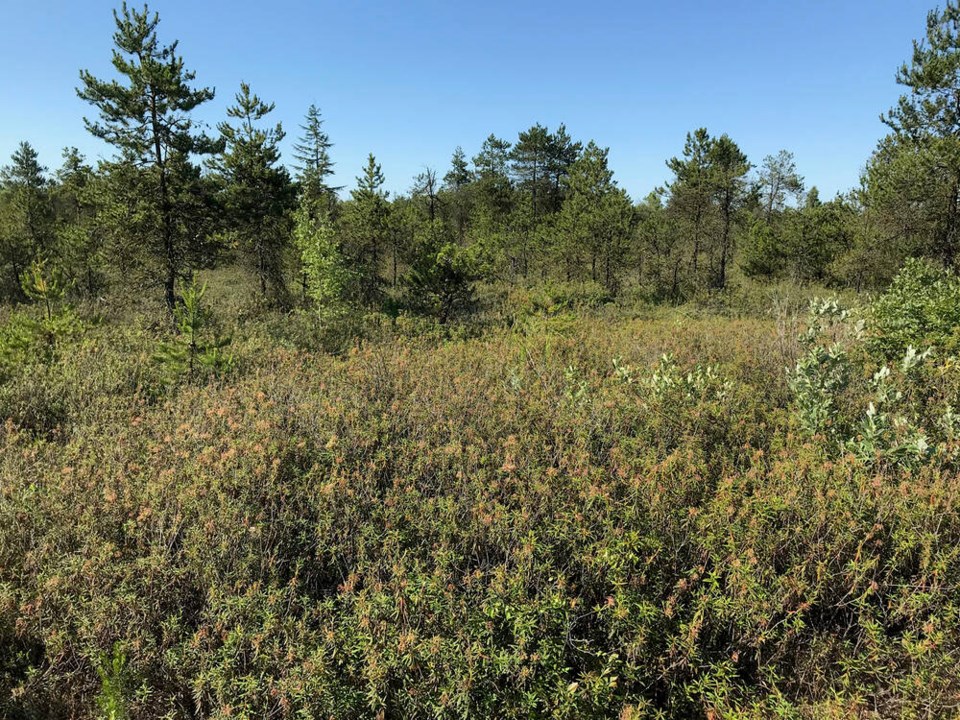The City of Delta is working with Metro Vancouver trying to ensure Burns Bog doesn’t dry up.
A staff report this week to council provided updates on a number of initiatives underway at the bog including what’s been happening with the water level monitoring and restoration program.
The Burns Bog Management Agreement includes the city being responsible for drainage management in the bog.
Significant work has been done by the municipality to dam internal ditches in an effort to increase water levels. Since the ditch blocking began in 2001, Delta has built a total of 479 dams, while a long-term water level monitoring program has been in place since 2005.
The report notes that staff have reviewed recent water level data from the bog’s interior with the regional district’s Burns Bog Scientific Advisory Panel and have determined that, despite. summer drought impacts from climate change, water levels are high and stable enough to pause the interior ditch blocking program. The goal is to give Delta and Metro Vancouver enough time to consider an overall restoration plan and priorities for the bog ecosystem.
However, the report also notes that the Burns Bog management team and the scientific advisory panel have agreed that the bog’s edge remains too dry in many areas as a result of perimeter drainage ditches, and is a priority for hydrological restoration.
From 2018 to 2020, Delta’s ditch blocking contractor installed an experimental underground dam similar to sheet piling along a 100-metre section at the southeast edge of the bog. The underground dam is to reduce the loss of water by seepage into a perimeter drainage ditch adjacent to a farm.
Preliminary monitoring results indicate that the dam has raised the water level, but additional work will be required to fully restore the site, the report notes, adding that this type of dam, or another restoration measure, will be required along the remaining perimeter ditches that surround much of the bog to address the low water levels in the areas.
Meanwhile, Delta is also assisting Metro Vancouver with a study in the site of the 2016 bog fire. Staff installed four water level monitoring wells with data loggers in August 2021 and will provide the data as part of a University of British Columbia (UBC) study on greenhouse gas emissions from different vegetation zones.
Also, when it comes to water in the bog, the development of a water balance model has also been a priority in the management plan. A water balance shows how much water is entering the bog through rainfall and how much is leaving the bog through drainage and evapotranspiration.
The report adds that a PhD student from UBC has conducted research on the water balance and has compiled data from Delta’s various hydrological studies. The student has completed his dissertation and is expected to publish his results soon.



